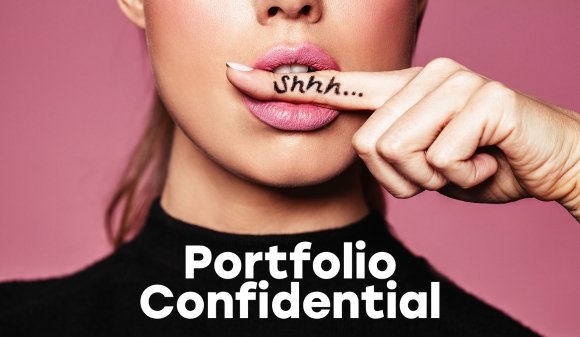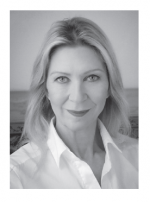Portfolio Confidential

 Real world confidential portfolio discussions:
Real world confidential portfolio discussions:
Q: I’ve recently graduated from university and have a new job with a salary, benefits and pension. After consulting with a friend who works at a bank, I have set up an automatic payroll deduction plan to save $1,000 per month. Half of this amount is being invested in a mutual fund “TD Comfort Growth Portfolio” as a conservative longer term investment strategy and the other half is going into a safe mutual fund “TD Monthly Income” to save for upcoming furniture and moving expenses. Can you please take a look at these funds to make sure I am on the right track?
A: I don’t like being the bearer of bad news, but the “TD Comfort Growth Portfolio” is probably not the best option for you. Google the factsheet and pay close attention to all of the details. There is an expense ratio of 2.13% - this means that if the fund goes up by 10% you make just under eight per cent because you are paying an exorbitant fee for being in this fund. To maximize your return potential, it is wise to keep fees to a minimum and there are plenty of ways to accomplish this.
I will be blunt: the word “Comfort” is a marketing term to attract unsuspecting investors into a “fund of funds” – the most expensive product in the investment industry. Bank salespeople are incentivised to sell these products, but they are often the worst way to invest. On top of this, they will charge you a two per cent redemption fee to get out of it. My recommendation is to pay that fee and get out as soon as possible, stop the bleeding, and move into a low fee ETF such as VUS.TO - Vanguard US Total Market Index ETF (CAD-hedged). Their expense ratio is only 0.16% and the five-year compound annual performance return is 15.5%. The five-year return for the “Comfort” fund of funds is 6.1%. (As at May 31st).
I don’t love the “TD Monthly Income” fund either – once again, check out the fact sheet. The majority of the underlying investments in this fund are in stocks so this isn’t a very conservative option if you are looking at it as a savings account. The fee isn’t as high at 1.43% but this is still high! It has also been a below-average performer. I don’t think there is a fee to get out of this one. Given your short term objective, I would keep the money in a high interest savings account as you are planning to use this money for future furniture purchases, etc. You won’t generate much income, but there is also much lower risk from a drop in equity markets.
Q: I am a 30-year-old professional makeup artist currently living with my parents. I now have an opportunity to share an apartment with a friend and I would very much like to move out! Unfortunately, up until this point I’ve never paid much attention to my finances, but I now feel ready to take control of my life. Could you please review my situation and let me know what you think? And can you please recommend a budgeting tool?
- Monthly income:.......... $3,000
- Monthly expenses: ....... $2,355
- Rent: ............................ $1,100
- Food: ............................... $200
- TTC: ................................... $80
- Phone: ............................. $100
- Netflix: .............................. $20
- Podcasts: .......................... $15
- Coffee: ............................ $140
- Acupuncture: .................. $200
- Clothes: ........................... $500
- TFSA savings: .................. $100
- Student debt:................ $7,050
A: As I am not a professional financial planner I decided to reach out to Steven Arnott, a reputable fee-for-service planner with Ripple Financial Planning and author of The Snowman’s Guide to Personal Finance.
Steve Arnott: The numbers as they’ve been provided seem manageable. At $3,000 gross income a month, they should have roughly $2,500 a month net of tax. Rent, groceries and transportation are slotted for $1,100, $200 and $80 respectively. This totals $1,380 which is roughly 55% of her take-home pay. I would expect food to be higher than $200 a month on average, especially if they plan to eat out occasionally. There are also potential expenses like utilities, internet, etc. not included here. Additional expenses like phone, subscriptions, coffee, acupuncture, and clothes total $975, which is roughly 40% of her take-home pay. This leaves five per cent, or roughly $125, for savings and loan repayment.
An important question is what would you like to get out of the next several years of your life? I’ve spent time in a house full of friends living paycheck to paycheck and having a terrific time. I’ve also spent time living with my parents to minimize my expenses and save up for future goals. I don’t regret either period because they both helped me meet my goals at the time. Answering this key question will provide guidance for the rest of the decisions that need to be made.
If your priority is to create a strong financial base then it would help to continue living at home, minimizing your expenses, paying off your student loan and continuing to build your savings account. That way, once you move out, you’ll have greater confidence that if anything unexpected comes up, you won’t need to change your plans. If this is your priority I’d recommend targeting 50% of your take-home pay for fixed expenses like rent, transportation and groceries; 30% of your take-home pay for optional expenses like subscriptions and coffee; and 20% of your take-home pay for saving and paying off loans. These are only guidelines. If you’d like to put 60% towards fixed expenses and 20% towards optional expenses that works as well. I’d also recommend that you save up at least three months of your expected fixed expenses before moving out. This way, if your income is lower than expected one month, or you run into an unexpected expense you won’t be caught off guard.
If your priority is to move out and encounter new experiences with your friend, then I’d recommend spending the next several months saving the amount you expect to pay in rent ($1,100) into a bank account. This will provide two things. It will confirm whether you can manage this added cost with your current income and other expenses, and it will provide an emergency fund once you move out. Before moving out, it’s important to consider the risks of running into cash flow challenges if income is less than expected or expenses are more than expected.
- Are you signing a lease for a year?
- Could you move back home?
- How would your roommate be impacted if you needed to move back home?
If you don’t have much flexibility this creates more risk to moving out too early. It’s also important to consider how your expenses may change once you move out:
- Are you responsible for the first and last month’s rent upfront? In this case, you would need $2,200 on top of any emergency money you want to keep available.
- Can you easily move your things into your new place, or would you have moving expenses?
- Will your TTC pass be enough to get you everywhere you need to go, or will your transportation costs increase?
- Will your grocery bill increase once you’re cooking meals for one or two people?
- Are utilities, internet and other expenses included in the $1,100 monthly rent?
Two popular budget tools are You Need a Budget (YNAB) and Mint. These will help you track, categorize and prioritize your spending. Another solution is to use a simple Excel sheet to review your most recent three months of credit and debit card transactions. Check www.snowmansguide.com for my blog Budgeting Tool with 5 Step Walk-Through.
Barbara Stewart, CFA. Do you have questions about your own investment portfolio? I have recently set up The Rich Thinking® Financial Advice Hotline. This will be a win/win: you get a free 30-minute confidential Zoom chat offering an independent, unbiased perspective on your financial situation with no sales pitch! In exchange, I get to use the anonymized data that will come from these conversations to make my Rich Thinking research even better. Email me to book your Zoom discussion: barbara@barbarastewart.ca


